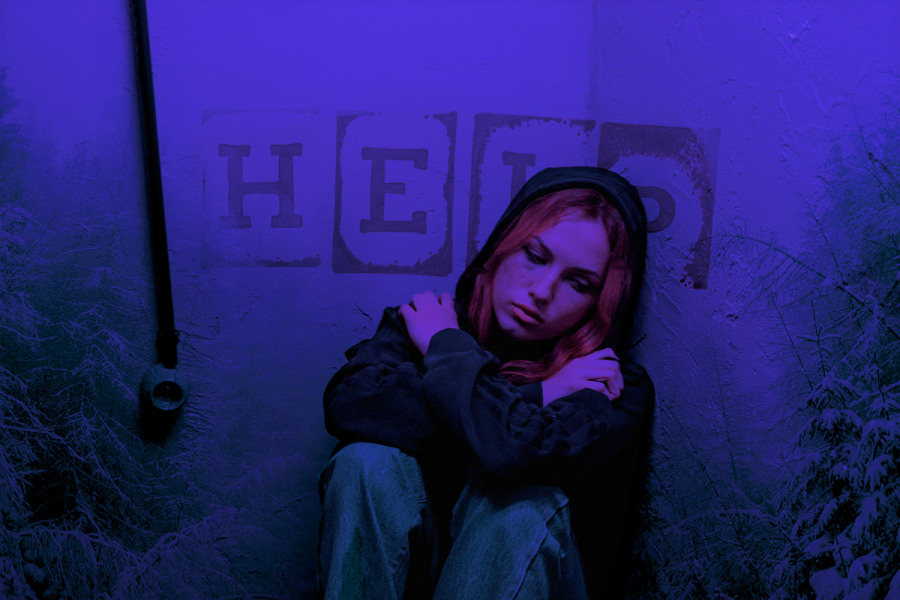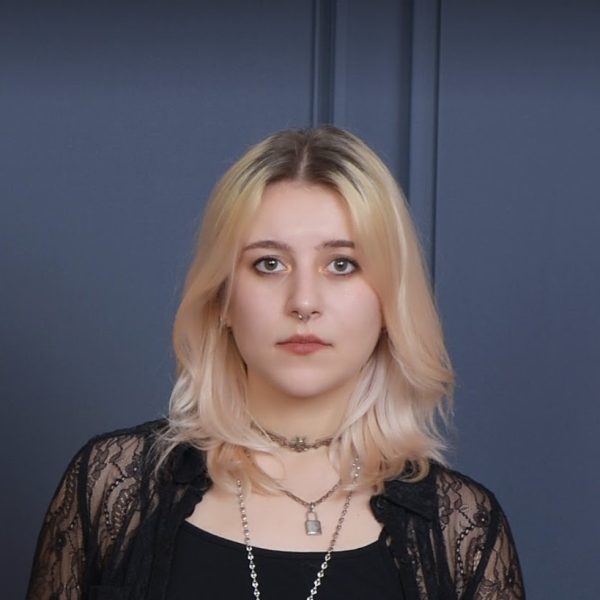Lezaic: Mental Illness is a Symptom of Systemic Oppression
(Graphic by Storey McDonald | The Daily Utah Chronicle)
September 27, 2022
It’s difficult to believe we have made it through almost three years of the pandemic. We’ve undergone countless trials and tribulations, and each day, it feels like another one gets added to our plates.
Incessant stressors take a toll on people, and we can’t gloss over the way they exacerbate mental health disparities. The increase in mental illness rates over the course of the pandemic revealed how our system pushes the masses to their limits, resulting in nationwide burnout.
Because of the hyper-individualistic nature of our country, we are made to feel personally responsible for our mental health issues by employers, school administration and politicians. We are conditioned to understand mental illness as a personal fault rather than an intentionally produced tool in our society. These dominant narratives serve to promote productivity through social stratification. To combat them, we must realize our common struggle under the same system and its inherent types of oppression.
Systemic Oppression and Depression
Although mental health care has broken into mainstream conversations, we talk in circles that never really address the root of the issue. Experts tell us to control our stress levels, but rarely do they acknowledge the nuances of our identities. Even more rarely do they give advice on how to heal, despite the obstacles thrown at some identities more than others.
Depression, one of the most common mental disorders, is defined by symptoms such as emptiness, loss of interest, tiredness and so much more. It’s no wonder that queer youth have the highest rates of suicide, especially those at the intersection of multiple oppressed identities. Seeing one’s rights be debated on a federal level will do that to a person.
It’s also unsurprising that Black people in the U.S. had the highest spike in anxiety rates during the pandemic, considering the frequent news stories about police brutality. On top of that, the Black community has dealt with higher exposure risk to COVID-19 as well as a disproportionate mortality rate.
The younger generation reports more cases of mental illness for a reason. We have to think about the climate crisis, the housing market and not being able to afford necessities while companies make record-breaking profits off our labor.
This is just the tip of the iceberg, and clearly very few people are fully enjoying reality. It’s difficult to maintain a healthy mental state when life is unstable and beyond your control.
The Issue With Existing Treatment
Most solutions to depression consist of therapy and medication. But aside from these treatments’ success rate, they only address problems on an individual level. Complex issues and social phenomena that span generations and centuries of history cannot be boiled down to hormone imbalances or stress. Additionally, the relationship between client and therapist is transactional, and can feel artificial at times. As a country, we’re so isolated that instead of having tight-knit communities to talk with about our issues, we pay doctors to understand us for 50 minutes a week.
Our current treatments operate under the assumption that one can afford therapy and medication, or that finding a therapist or psychiatrist is easy. Access to therapy, medication and other resources makes life with a mental illness tolerable. But if you can’t find or afford this band-aid of a solution, our system will look for a chance to criminalize you and profit off your body in a private prison. As with all things in the U.S., this affects Black individuals the most.
We must ask ourselves what the standards are for mental health and who it is based around. When a society’s structure prioritizes the identities of white, cisgender, able-bodied, straight and wealthy men, then people who don’t fit into those categories will feel like outcasts and be told they need a diagnosis. We shouldn’t align ourselves with those standards.
Supplementatal Solutions
It’s easy to talk about what doesn’t work in our fight against mental illness. But figuring out what does is much harder. We need effort, vulnerability and deconstruction of what we’ve been taught our whole lives.
When author Johann Hari started researching for his book, he attempted to do just that. In his TedTalk, Hari talked about how lonely we are as a society, and how crucial it is to learn how to connect with other people. His anecdotes centered around building community, sharing resources and showing empathy towards hurt people. He said, “The solution to these problems does not lie in drawing more and more on your resources as an isolated individual — that’s partly what got us in this crisis. It lies on reconnecting with something bigger than you.”
Building community can be difficult, especially for people deprived of time, energy and money. Taking time for yourself can be even harder, especially when many contemporary activities revolve around time-consuming algorithms. The last thing most of us want to do is add more things to our busy schedules. But Laura Vanderkam, author of “Tranquility by Tuesday: Nine Ways to Calm the Chaos and Make Time for What Matters,” writes, “As counterintuitive as that seems, adding energizing activities to your schedule just might make life feel more doable.” When you fill your life with meaningful moments that offer joy and human connection, it pays off.
Humans are social beings. If we lean into the isolation the pandemic solidified, we’re playing right into the hands of a country that depends on social division and hopelessness. As individuals, we can’t heal facing this systemic issue, which is why we need people and communities who understand us in fighting for better living conditions.









A. M. • Sep 29, 2022 at 10:17 am
I strongly agree that mental illness is not the fault of an individual. I strongly disagree that mental illness is an intentionally produced tool in our society.
Human beings are responsible for their actions, not necessarily their feelings. To paint a picture where society has absolute control over what a person can do and feel leaves one hopeless and victimized, robbed of their humanity and ability to choose, the destination of their life left in the hands of another.